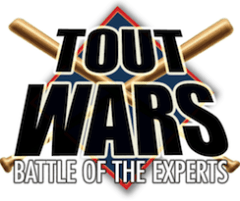Brian Walton wrote a story earlier this week about his attempts to trade with a nameless owner who caused him fits. Brian was peeved and let the owner know it, but when he told the story he scrubbed it of any identifying information, to save the owner from embarrassment. It was a gracious gesture but unnecessary. The owner felt his actions were, with one small exception, above board and proper. I should know, the owner was me.
I don’t want to get into a back and forth on the details of the trade, except to mention my mistake. As we discussed a deal that gained Brian a very good starting pitcher and me a bunch of pieces that were of interest, but not what I was particularly looking for, I wrote Brian an email that said: “Would you do Madson, Barney and $50 FAAB for Chris Carpenter? I guess it puts me in position to gain if I get lucky at the deadline, but I would have a hard time pulling the trigger.â€
My intention was to demonstrate that a deal that I probably wouldn’t do, he wouldn’t do, but he surprised me and accepted it. $50 FAAB put me in first position at the trading deadline by about $20. Even if someone else traded they were unlikely to bulk up that much. But on the other hand, I was trading for a maybe closer, a hitter who did most of his damage batting second on the Cubs early in the season, who was now batting eighth and was not nearly as hot (and shouldn’t be expected to be), and first position in FAAB to buy, well, an ALer coming into the NL. If one did. It wasn’t a trade I wanted to make, though I had to admit that if things broke right it could earn me the points to get into third place.
My mistake was making it sound like an offer, since I wasn’t ready to do it. While I felt like I’d made it clear that it wasn’t an actual offer, but talking points, I phrased it badly, and when Brian accepted I felt badly. I spent way too much time afterward trying to justify the deal, and I couldn’t do it, mostly because of the chance that Madson wouldn’t get 10 saves (which would probably earn me two points). Then I came up with the idea of taking his handcuff, Lidge, too. Since I was offering back the similar Chris Resop, I expected Brian to accept, but he didn’t.
I felt badly, I wished I’d handled it differently, but I didn’t think I’d done anything wrong. Then the conversation took a different tack.
Brian offered me Darwin Barney for FAAB. How much FAAB? He didn’t ask for a particular amount, but it was clear he wanted more than $15, which would put him in first position in FAAB.
My problem with this, and the real story of this article, is the problem with FAAB trading. The motives and rewards of the various partners are asymmetrical, and so something of small benefit to one can be a huge advantage to another.
In this case, if Barney were available as a free agent I would likely have bid in the 20s for him. He wasn’t a huge help for me, but my team has been riddled with injuries and hard to fill holes all season. A regular has value, even if he doesn’t necessarily gain you points himself. And as the season goes along FAAB has less value.
My problem was that giving Brian first position in FAAB almost certainly gave him someone who was far better than Barney (who Brian really didn’t need). Did it make sense to give an opponent–one who was solidly in first place–a huge advantage in exchange for a player who didn’t move the chains for my team? I didn’t think so.
This is not an argument against FAAB trading if FAAB trading is allowed in the rules. Remember, I’d spent most of the day trying to get the FAAB to get into first position, since my middlin’ team needed a hail mary. But it didn’t feel right to me to trade this leverage to the first place team for an insignificant improvement to my team.
Brian was mad about this, and got even madder when the hard charging second-place Steve Gardner traded a minor player for $7 FAAB to go from second position to first, which I can understand. And these illustrations demonstrate why I’m opposed to FAAB trading.
Me trading $15 to Walton for Barney would have a totally different meaning than me trading $15 to a seventh place team far from the top of the FAAB list.
Just as Brian trading $50 to my seventh place team so that I’d be in first place in FAAB would have a totally different meaning, in part because I’m not going to win, and in part because–as Brian mentions in his article about this–the $50 FAAB was pretty meaningless to him in the context of picking up Carpenter.
As it turned out, Brian ended up with Derrek Lee anyway, so Gardner moving up didn’t harm him. And me failing to trade him $15 didn’t hurt him either (especially since Gardner would have ended up ahead of him anyway). He’s having that kind of year, at least so far.
In the meantime, I’m noticing that many others don’t like FAAB trading, including Steve Gardner. I’m not sure if their reasons are the same as mine, but be cautioned if you’re thinking about adding this innovative rule. There is an appeal to having a simple way to even out slightly askew deals, but the consequences can be out of align. I think that’s a serious problem.

